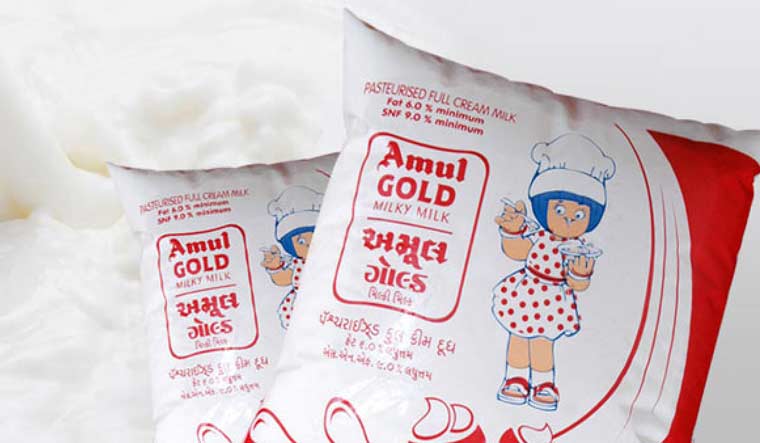Gujarat Cooperative Milk Marketing Federation (GCMMF), which markets products under the brand Amul, is looking to increase procurement of milk from Gujarat and other states, while also expanding its processing capacity, as it looks to double its revenue in five years.
GCMMF is the country’s largest milk cooperative. Sales of Amul Federation and its 18-member union rose 17 per cent year-on-year and crossed Rs 50,000 crore in the year ended March 31, 2020.
“We have been growing at the rate of 17-18 per cent and as consumption of dairy products will continue to grow, I don’t foresee any problem. We will continue on this growth path,” R.S. Sodhi, Managing Director of Amul told THE WEEK.
Amul has clocked a compounded annual growth of 17 per cent in the last decade due to higher milk procurement, adding new markets and milk processing capacities. In recent years, it has expanded into new product categories like fruit juices and cookies. It has also doubled down on chocolates, with a strong focus on dark chocolates.
“If you want to increase turnover, you have to increase the volume of milk, which you are handling. We will expand our milk procurement and milk processing capacity within Gujarat and in other states, and also our penetration in more markets, especially for the fresh products,” said Sodhi.
In recent years Amul has seen strong demand for not just milk, but also allied products like butter milk, lassi and cheese. Its range of Indian mithai (sweets) has also found a lot of traction.
Even as the company remains bullish over its growth and expansion over the next few years, Amul and the wider dairy industry is expected to see some near-term impact due to the lockdown imposed across India over the COVID-19 outbreak.
Milk is an essential commodity and there is enough stock, said Sodhi. Amul has taken help from state governments as well as the centre to ensure that there is no disruption in distribution and people continue to get their supply of milk daily.
Sodhi, in fact, said that the company has increased milk procurement by 10-15 per cent as some of the other players are not able to procure milk in the current lockdown. As people are stuck home, demand for Amul’s ghee and butter as well as milk in tetrapack has also gone up, he added.
However, with much of the country shut for at least 21 days, Amul, like many other consumer goods players, which supply to hotels, restaurants and cafes, will be impacted.
“Sales of ice-creams, beverages, cream etc have been impacted significantly as hotels, restaurants and outlets selling these products are shut in the lockdown,” said Sodhi.
Overall industry demand for milk is estimated to have fallen by up to 25 per cent, analysts estimate.
Ice-creams are going to be the biggest losers, as the lockdown will hit consumer offtake in the summer season, which accounts for half of the annual consumption. Ice-cream sales could drop 50 per cent, according to a ICICI Securities report. Ice-creams have longer shelf life, however, companies will incur higher costs on cold chain to carry the inventories, the brokerage said, adding, larger players will gain market share as smaller brands and roadside vendors will be most impacted due to the lockdown.



